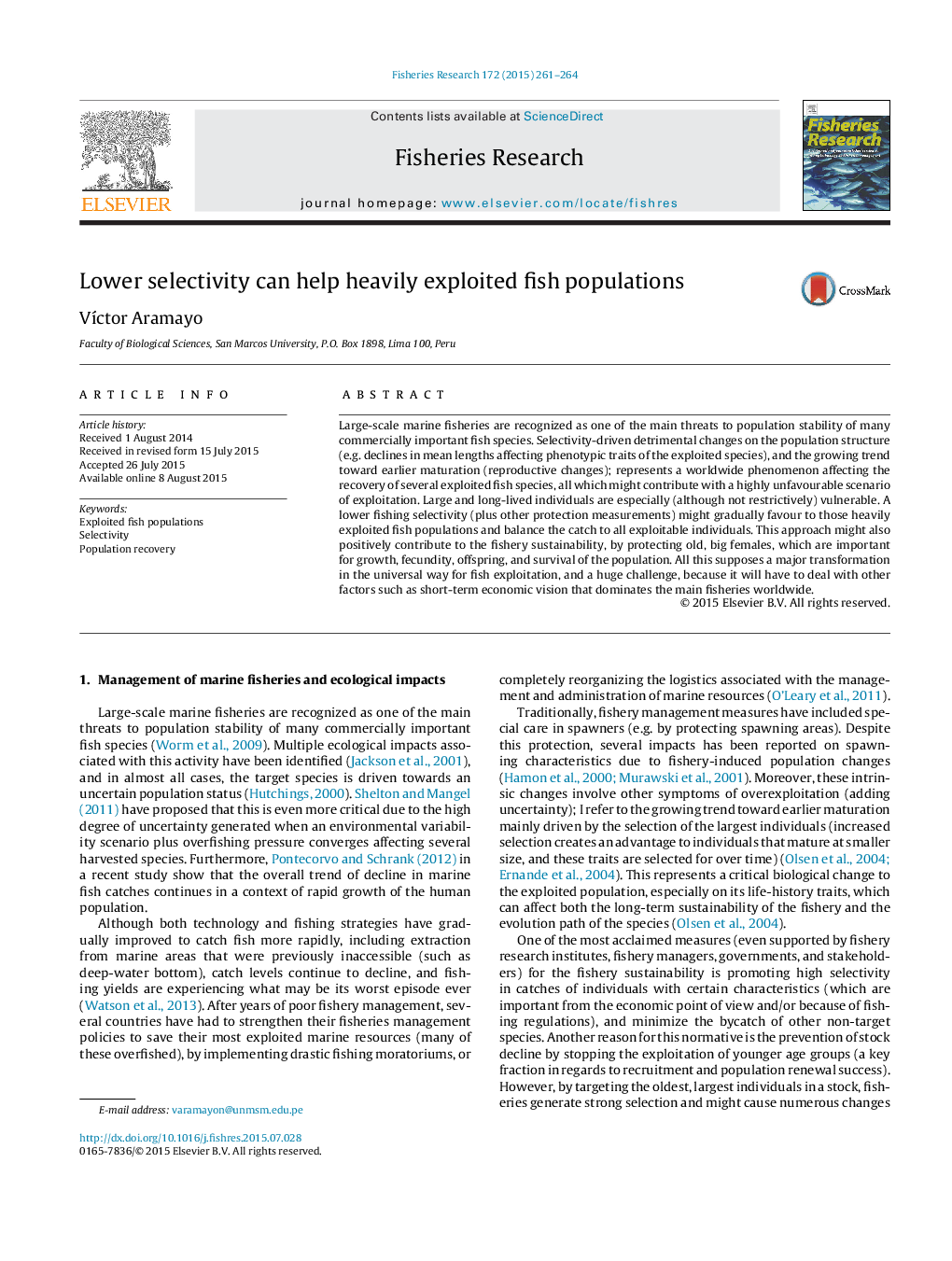| Article ID | Journal | Published Year | Pages | File Type |
|---|---|---|---|---|
| 6385446 | Fisheries Research | 2015 | 4 Pages |
Abstract
Large-scale marine fisheries are recognized as one of the main threats to population stability of many commercially important fish species. Selectivity-driven detrimental changes on the population structure (e.g. declines in mean lengths affecting phenotypic traits of the exploited species), and the growing trend toward earlier maturation (reproductive changes); represents a worldwide phenomenon affecting the recovery of several exploited fish species, all which might contribute with a highly unfavourable scenario of exploitation. Large and long-lived individuals are especially (although not restrictively) vulnerable. A lower fishing selectivity (plus other protection measurements) might gradually favour to those heavily exploited fish populations and balance the catch to all exploitable individuals. This approach might also positively contribute to the fishery sustainability, by protecting old, big females, which are important for growth, fecundity, offspring, and survival of the population. All this supposes a major transformation in the universal way for fish exploitation, and a huge challenge, because it will have to deal with other factors such as short-term economic vision that dominates the main fisheries worldwide.
Keywords
Related Topics
Life Sciences
Agricultural and Biological Sciences
Aquatic Science
Authors
VÃctor Aramayo,
